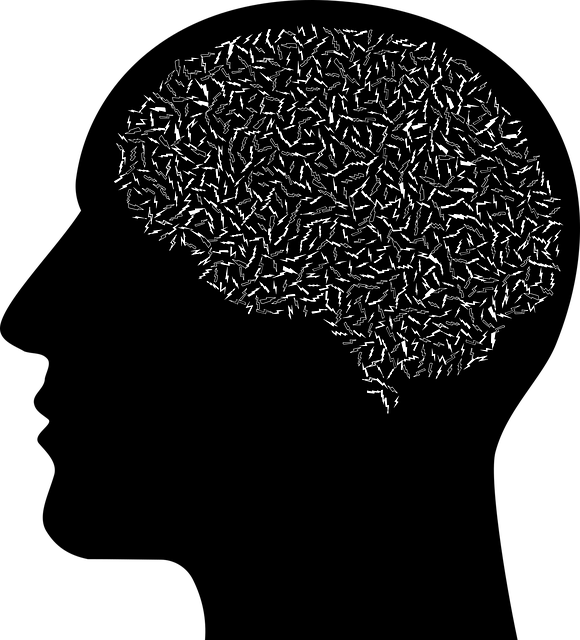In Louisville, understanding mental health data requires a comprehensive approach involving qualitative and quantitative methods, ensuring data accuracy and ethical sourcing. Louisville Dissociative Disorder Therapy offers specialized care, using patient data from initial assessments to post-therapy evaluations to uncover the effectiveness of empathy-focused treatments. This process allows for tailored interventions, enhancing individual patient outcomes by tailoring therapeutic strategies based on data analysis, including emotional intelligence considerations.
Mental health data analysis is a powerful tool for understanding complex conditions like dissociative disorders. This article explores the process of analyzing and interpreting data from Louisville Dissociative Disorder Therapy, highlighting key steps in data preparation and collection. We delve into specific strategies used to evaluate therapy outcomes, offering insights that can inform and improve treatment strategies for this challenging disorder. By understanding these methods, mental health professionals can make data-driven decisions to better support patients.
- Understanding Mental Health Data: Collection and Preparation
- Analyzing Louisville Dissociative Disorder Therapy Outcomes
- Interpreting Data to Improve Treatment Strategies
Understanding Mental Health Data: Collection and Preparation

Understanding mental health data involves a meticulous process of collection and preparation. In cities like Louisville, where dissociative disorder therapy is readily available, gathering comprehensive data on mental health is essential for informed decision-making. This includes various qualitative and quantitative methods such as surveys, clinical assessments, and electronic health records. The initial step requires careful planning to ensure the data collected is relevant, accurate, and ethically sourced.
Preparation involves cleaning and organizing the data to eliminate inconsistencies and errors. This critical stage ensures that any analysis or interpretation yields meaningful insights. Mental health awareness campaigns and resilience-building strategies can guide the collection process, making it more inclusive and representative of diverse populations. Empathy-building strategies are also vital to ensure data collectors maintain sensitivity towards personal experiences.
Analyzing Louisville Dissociative Disorder Therapy Outcomes

In the realm of mental health data analysis, examining the outcomes of specialized therapies for complex conditions like dissociative disorder is paramount. Louisville Dissociative Disorder Therapy provides a unique lens into effective treatment approaches and their impact on patient lives. By delving into this specific therapy type, researchers and practitioners can uncover valuable insights that enhance care strategies. The process involves meticulously analyzing various data points—from initial assessment scores to post-therapy evaluations—to gauge progress and identify areas of improvement.
This analysis highlights the significance of empathy-building strategies within the therapeutic framework. Public awareness campaigns development and promoting self-care routine development for better mental health are integral components of Louisville Dissociative Disorder Therapy, contributing to improved patient outcomes. Such insights not only benefit the individuals directly involved but also influence best practices in the field, ensuring more effective support for those struggling with dissociative disorders.
Interpreting Data to Improve Treatment Strategies

Interpreting data is a powerful tool for enhancing mental health care, especially when tailored to specific disorders like dissociative disorder in Louisville. By analyzing trends and patterns within patient populations, therapists can refine their treatment strategies and personalize approaches to better meet individual needs. This involves not only understanding statistical insights but also considering the emotional intelligence required to adapt therapeutic methods.
For example, data might reveal specific triggers for dissociation or highlight effective coping mechanisms. Such insights enable mental wellness professionals to design tailored interventions and support services, including trauma-focused therapy. Through this evidence-informed process, Louisville dissociative disorder therapy can evolve, ensuring patients receive the most appropriate care, ultimately improving outcomes and fostering a stronger sense of emotional resilience among those seeking help for complex trauma.
Mental health data analysis is a powerful tool for understanding and improving treatment outcomes, as demonstrated by the successful application of techniques in Louisville Dissociative Disorder Therapy. By meticulously collecting, preparing, and interpreting data, healthcare professionals can gain valuable insights into patient progress and tailor their strategies accordingly. This evidence-based approach ensures that treatment plans are effective and adapted to meet the unique needs of individuals suffering from dissociative disorders. Through continued analysis and collaboration, mental health services can evolve, ultimately enhancing patient care and outcomes.














